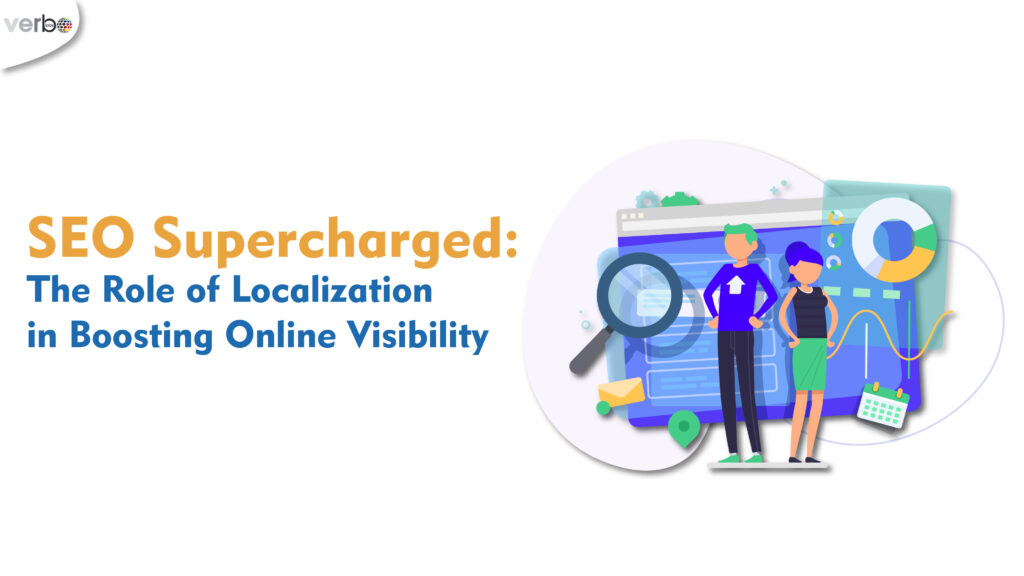The importance of SEO cannot be undermined when it comes to deciding your brand’s organic reach. Combining global SEO strategies with the help of language localization has become a game-changer for businesses seeking visibility and genuine connection with their target audiences. Not everyone uses the exact verbiage in different locations to find desired results. As search engines regularly refine their algorithms to prioritize user experience, the role of localization in this digital arena has taken center stage. Beyond the traditional realms of SEO, localization gives your content a personalized touch. It is about crafting a narrative that speaks fluently in the dialect of each market, driving engagement and catapulting online visibility to unparalleled heights. Let us understand more about the localized SEO impact and how businesses can harness their potential to become visible and unforgettable in the expansive and evolving era of the internet.
But why is localization considered this important when it comes to SEO? Beyond surface-level translation, localization involves a deep understanding of cultural nuances, consumer behaviors, and regional preferences. It fosters a connection that goes beyond mere visibility. Localization becomes indispensable as search algorithms evolve to prioritize relevance and user-centric content. This exploration unfolds the narrative of how businesses can navigate the digital mosaic, leveraging the potency of localization to capture attention and resonate authentically in the hearts and minds of diverse online communities. Let’s understand more about it in detail.
How Localization Boosts Online Visibility
Localization can be one of the most efficient ways to boost your brand’s online visibility. Several global SEO strategies come into play regarding your website’s presence.
- Precision in Language and Culture: Localization involves a profound understanding of each target market’s linguistic subtleties and cultural intricacies. It goes beyond mere translation, ensuring that your content is culturally sensitive, resonates with local values, and avoids inadvertent misinterpretations that could impact your brand’s reputation.
- Geo-Targeted Keyword Optimization: A key facet of localization is optimizing keywords based on the specific regions you aim to target. This involves identifying relevant keywords and understanding the nuances of how users in different locations express their search intent. It ensures that your content aligns with local search behaviors.
- Enhanced User Experience: Localization is a cornerstone of delivering an enhanced user experience. Customizing your website’s design, content layout, and overall aesthetics to align with local preferences ensures that users feel at home when navigating your site. This, in turn, contributes to longer dwell times, lower bounce rates, and higher user satisfaction—all critical factors in SEO rankings.
- Localized Content Relevance: Creating content that resonates with the target audience requires more than linguistic accuracy. It demands cultural relevance. Localization allows businesses to craft narratives that tap into local sentiments, addressing issues, concerns, and aspirations specific to each region. This relevance fosters a deep connection with users and enhances overall engagement.
- Multilingual SEO Meta Tags and Descriptions: Localization extends to crafting meta tags and descriptions in multiple languages to optimize your online presence globally. This ensures that search engines accurately index your content for users searching in different languages and contributes to a more polished and professional appearance in local search results.
- Local Link Building Strategies: Link building is a fundamental SEO strategy, and localization takes it further by implementing region-specific link-building procedures. This involves forging partnerships with local businesses, influencers, and directories, strengthening your website’s authority in each target region, and signaling relevance to search engines.
- Mobile Optimization for Local Searches: Creating content that resonates with the target audience requires more than linguistic accuracy; it demands cultural relevance. Localization allows businesses to craft narratives highlighting local sentiments and addressing issues, concerns, and aspirations specific to each region. This relevance fosters a deep connection with users and enhances overall engagement.
- Multilingual SEO Meta Tags and Descriptions: Localization extends to crafting meta tags and descriptions in multiple languages to optimize your online presence globally. This ensures that search engines accurately index your content for users searching in different languages and contributes to a professional and more polished appearance in local search results.
- Local Link Building Strategies: Link building is a fundamental SEO strategy; localization takes it further by implementing region-specific link-building procedures. This involves forging partnerships with local businesses, influencers, and directories, strengthening your website’s authority in each target region, and signaling relevance to search engines.
- Mobile Optimization for Local Searches: Localization extends to the mobile realm, recognizing the growing importance of mobile searches, especially in local contexts. Optimizing your website for mobile devices in specific locations ensures that users have a seamless, responsive, and visually appealing experience, positively impacting user experience and SEO.
- Social Media Localization: Social media platforms are global hubs of interaction, and effective localization on these platforms involves tailoring your content and campaigns to align with regional trends, cultural nuances, and language preferences. Engaging authentically with local audiences on social media boosts your brand’s visibility and contributes to a positive social signal for SEO.
- Adapting to Local SEO Algorithms: Each region may have search engine algorithms prioritizing specific factors. Successful localization involves staying abreast of these algorithmic nuances, adapting your content, and aligning your SEO strategies to meet the particular ranking criteria of each region. This ensures optimal visibility in local search results.
- Localized Online Reviews and Testimonials: Encouraging and showcasing localized reviews and testimonials on your website adds a layer of authenticity and trust. Positive feedback in the language of your target audience builds credibility and influences local search rankings, as search engines recognize the value of genuine user endorsements.
Conclusion:
Language localization transcends linguistic barriers, unraveling the cultural phenomenon of diverse markets and weaving a narrative that resonates authentically. Cultural SEO optimization can significantly push your website and brand presence in the right direction. In this digital symphony, businesses that embrace the power of localization secure visibility and foster genuine connections with audiences worldwide. As the online landscape continues to evolve, those harnessing the transformative synergy of SEO and localization are not merely adapting—they are thriving. If your brand wishes to take advantage of international online visibility, VerboLabs can help you. Having more than 10,000 professionals with expertise in over 120 languages, your brand could leverage a wider reach. Comment down below your SEO strategy for 2024.



